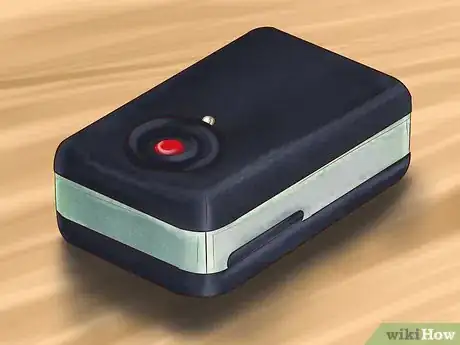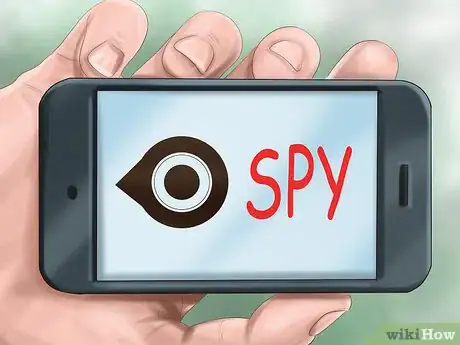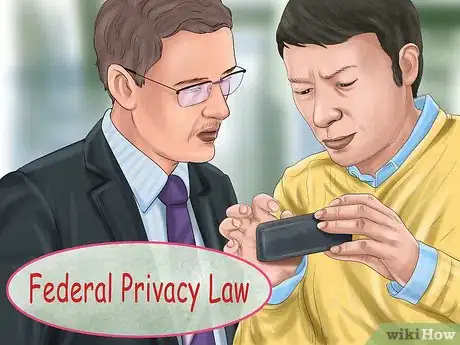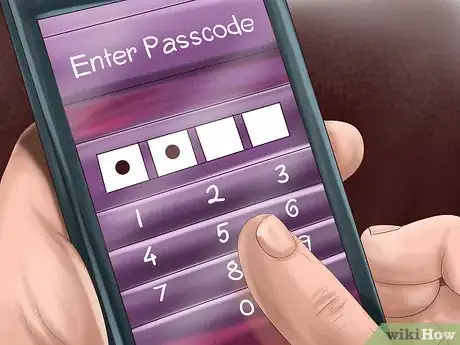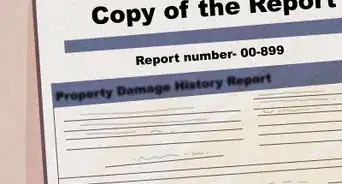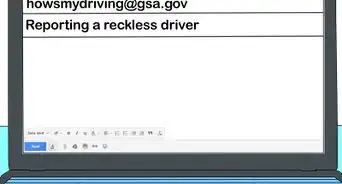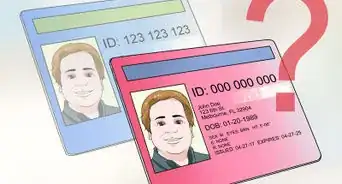This article was co-authored by Clinton M. Sandvick, JD, PhD. Clinton M. Sandvick worked as a civil litigator in California for over 7 years. He received his JD from the University of Wisconsin-Madison in 1998 and his PhD in American History from the University of Oregon in 2013.
There are 11 references cited in this article, which can be found at the bottom of the page.
This article has been viewed 137,181 times.
When you think of spying, an action hero like James Bond or Jason Bourne probably comes to mind first. Spying is a lot more mundane in real life, but that doesn’t mean there aren’t legal pitfalls to watch out for. If you feel the need to spy, you’re in the right place—we’ll walk you through which espionage methods are legal, and which tactics to avoid to stay on the right side of the law. Your mission begins now!
Things You Should Know
- Use hidden home cameras, a GPS tracker in your own car, or publicly available records and social media to keep your spying legal.
- Record conversations according to privacy laws in your state and avoid impersonating someone or accessing their personal devices without consent.
- Protect yourself from spying by changing all your passwords, replacing compromised phones, and installing anti-virus programs on your computer.
Steps
Legal Spying Tactics
-
1Set up a hidden camera in your home. If you expect the person on whom you wish to spy will be in your home (e.g., a spouse), you can set up a camera to monitor their activity, so long as you own the property and no audio is recorded.[1]
- This area of the law is still evolving, so it is best to inform anyone who enters your home that they may be subject to recording or monitoring.[2] Giving this notice will greatly improve your case should you ever be taken to court for an alleged invasion of privacy.
-
2Place a GPS tracker in your vehicle. While the law is not fully defined when it comes to using GPS tracking devices, it is probably legal to place a GPS device on a vehicle you own. If the person on whom you wish to spy might use your vehicle, this can be a great way to keep track of their whereabouts. Because it is your property, like your home in the above example, you have greater rights to monitor the use of that vehicle than you would if the vehicle belonged to someone else.
- Conversely, it's probably not a good idea to place a GPS device on someone else's vehicle.
Advertisement -
3Hire a private investigator. If you don't know how to go about spying on someone, don't have the time, or would simply prefer to let someone else do this task for you, you can consider hiring a private investigator. These individuals have surveillance experience and will likely have a decent idea of the privacy laws of your jurisdiction.
- Make sure, however, that the investigator does not use any illegal methods of spying like those detailed above, or you could be punished in the same manner as if you had done the illegal spying yourself. Be clear with your instructions, and outline in writing what activities you are authorizing the private investigator to take.
-
4Use publicly available information. You can find out a surprising amount about a person and their activities by simply searching for them on the internet. Try looking for things like property records, credit reports, and criminal histories.[3]
-
5Observe the person in a public place. If the person on whom you wish to spy is in a public place, they have no expectation of privacy, and it is therefore legal to observe and make note of what they do or where they go.
- Try to limit your surveillance tools to your own eyes and ears. The use of any other device, even when the subject is in a public place, could be problematic in the eyes of the law.
-
6Check the person's social media trail. While accessing the password-protected social media accounts of others is illegal, simply reviewing the information someone has posted publicly is perfectly legal. These days, people tend to document much of their lives by uploading pictures or posting status updates on a variety of websites. You can learn a lot of information about a person by checking to see where they are posting from, when they are posting, and what they are posting.
Illegal Spying Tactics
-
1Use cameras only to protect your personal property. In a majority of jurisdictions, it is illegal to use a hidden camera to spy on other people.[4] While law-enforcement officers or government agents may have this right, a private citizen is not allowed to record another person's behavior without their knowledge or consent.
- The exception to this is your home. You are allowed to install a camera to monitor what goes on in your house, or to prevent crimes from occurring on your property. Your intent here is of utmost importance. If you have a valid reason for having a hidden camera installed on your property, this behavior will likely be judged legal. This area of the law is still evolving, however, and varies from state to state. Understand that this exception exists because the act of taping or monitoring your home is not considered spying. To be considered spying, you must be collecting information and making observations furtively (stealthily).[5]
-
2Never install any monitoring or surveillance software on someone else's phone or computer. It is illegal to use this type of software (commonly referred to as "spyware") to spy on someone else via their phone or computer.[6] [7] While the sale of this software is legal because the companies that offer these products include a disclaimer in the license agreement that their product is to be used only for legal purposes, you will be legally responsible if you use them in a manner that violates federal, state, or local law.
-
3Access someone else's computer or phone only if you have that person's consent. Accessing someone's private communications (e-mail, text messages, voicemails, etc.) without their knowledge or consent is against the law.
- Federal law prohibits intentional, unauthorized use of or access to this type of information.[8] If the person on whom you are spying has consented to you accessing their private communications, or you have come across this information by accident, this activity will probably be considered legal, but will still be subject to an intensive factual analysis by a judge.
- The use of an improperly obtained password is also illegal. Even if you are able to correctly guess another person's password, if they have not authorized you to use their device, accessing the information on it is against the law.[9]
-
4Never pretend to be someone else in order to obtain information about that person. The legal term for this is "pretexting," and it is illegal. You cannot call a cell phone company, hotel, bank, credit card company, etc. pretending to be someone other than yourself in order to acquire personal information about another person.
-
5Know when you can record a conversation. If all the people involved in a conversation consent to its recording, it is always legal to record that conversation. In 38 states, including the District of Columbia, it is legal to record a conversation in which you are involved without the consent of the other person/people involved, whether in person or over the phone.[10] However, if you are a resident of California, Connecticut, Florida, Illinois, Maryland, Massachusetts, Michigan, Montana, Nevada, New Hampshire, Pennsylvania, or Washington, it is illegal to record private conversations unless all those involved give their consent.
- In California, for example, it is only illegal to tape someone without their knowledge or consent if you knew ahead of time that it was against the law to do so. In other words, you have to intend to break the law in order to do so. If you can show that you were unaware of the law, you will not be found guilty of breaking it.
- It is illegal to record a private conversation in which you are not involved. For example, hiding a tape recorder in someone's car or luggage to record their conversations with others without their knowledge or consent is illegal.
- In many states, even possessing wiretapping equipment is a crime.[11]
Protecting Yourself From Spying
-
1Change your passwords. If you suspect someone is spying on you by accessing your e-mail, phone, etc., your first step should be to change all of your passwords. Make sure your new passwords are not similar to your old ones, and are hard to crack. Many websites offer free password generators.[12]
- Also be sure to change the security questions you use to verify your identity in case your password becomes lost.
-
2Get a new phone and/or computer. If you notice your phone bill is unusually high, your device's battery is draining quicker than normal, unexplained icons are appearing on your device, or you notice a decrease in the performance or speed of your device, this could be a sign that your device is being monitored by software running the background.[13] If you have the finances available, getting a brand new device is the best way to ensure your personal information is not compromised and that you are not being tracked.
- Alternatively, you could ask the manufacturer of your device or check the internet to find out how to reset your device to its default factory settings, thereby eliminating any unwanted software that may have been installed.
- Once your phone is reset or you have purchased a new one, don't leave it unattended.
-
3Exercise common-sense computer safety. Whether you have replaced your computer or simply restored it to its factory default, it is good practice to follow basic safety practices going forward to protect yourself from further intrusion.[14] For example:
- Use an anti-virus program.
- Use encryption software for especially sensitive communications.
- Cover your webcam when it's not in use.
- Don't click on e-mails or links you don't recognize.
Warnings
- Trespassing on private property to spy on someone is always illegal.⧼thumbs_response⧽
- Any information you obtain in an illegal manner is not admissible in a court of law.⧼thumbs_response⧽
- In any case involving your privacy or that of others, a judge will pay careful attention to the specific facts of the case before making a ruling. Because of this, you cannot be totally sure what you are doing will be deemed legal if challenged in a court of law. Again, if you are unsure of a particular activity, it is best not to take the chance.⧼thumbs_response⧽
- The law dealing with technology as it relates to privacy is complicated, underdeveloped, applied inconsistently, and constantly evolving.[16] It also varies from state to state. If you feel you must spy on someone, it is best to consult with a lawyer in your state to see if your proposed activities are legal in your jurisdiction.⧼thumbs_response⧽
- Ultimately, the laws governing spying activities focus on two things: (1) the expectation of privacy of the individual being spied on, and (2) the intent of the person doing the spying.[17] If you are not confident what you are doing is legal, it is best to refrain from such activity unless you have a thorough understanding of federal, state, and local privacy law.⧼thumbs_response⧽
References
- ↑ https://www.rosen.com/alimony/alimonyarticles/think-twice-snoop-cell-phone-spyware/
- ↑ http://www.pcworld.com/article/170745/personal_spy_gear.html?page=2
- ↑ http://www.forbes.com/2006/10/25/leadership-hewlett-packard-spying-lead-manage-cx_hc_1025fiveways.html
- ↑ http://www.nbcnews.com/id/52277423/ns/technology_and_science-tech_and_gadgets/t/spy-next-door-private-surveillance-has-never-been-easier/#.Vi9INxCrTBI
- ↑ http://dictionary.reference.com/browse/spying
- ↑ http://resources.infosecinstitute.com/mobile-phone-spying-software-legality-symptoms-and-removal/
- ↑ http://www.cnet.com/au/news/smartphone-spy-apps-the-facts/
- ↑ https://www.rosen.com/divorce/divorcearticles/electronic-communications-privacy-act/
- ↑ https://www.rosen.com/alimony/alimonyarticles/think-twice-snoop-cell-phone-spyware/
- ↑ https://www.rcfp.org/first-amendment-handbook/introduction-recording-state-hidden-camera-statutes
- ↑ https://www.rcfp.org/first-amendment-handbook/introduction-recording-state-hidden-camera-statutes
- ↑ https://identitysafe.norton.com/password-generator/
- ↑ http://resources.infosecinstitute.com/mobile-phone-spying-software-legality-symptoms-and-removal/
- ↑ http://www.hg.org/article.asp?id=31868
- ↑ https://www.rosen.com/alimony/alimonyarticles/think-twice-snoop-cell-phone-spyware/
- ↑ http://www.nbcnews.com/id/52277423/ns/technology_and_science-tech_and_gadgets/t/spy-next-door-private-surveillance-has-never-been-easier/#.Vi9INxCrTBI
- ↑ http://www.nbcnews.com/id/52277423/ns/technology_and_science-tech_and_gadgets/t/spy-next-door-private-surveillance-has-never-been-easier/#.Vi9INxCrTBI
About This Article
If you need to spy on someone, be careful about doing anything that violates the law. Spying on someone by checking their social media profiles is completely legal, and you can learn a lot about someone this way. You can also observe what a person does and where they go when they’re in public. You can also technically record someone in your home, but you'd have to inform them when they come inside or it could cause you legal problems down the road. You can always hire a private investigator to spy on someone for you. They'll be more familiar with what is and isn't legal. Remember to never install monitoring software on someone’s computer, phone, or vehicle since it's illegal. For tips from our Legal co-author on how to stop people from spying on you, read on.

